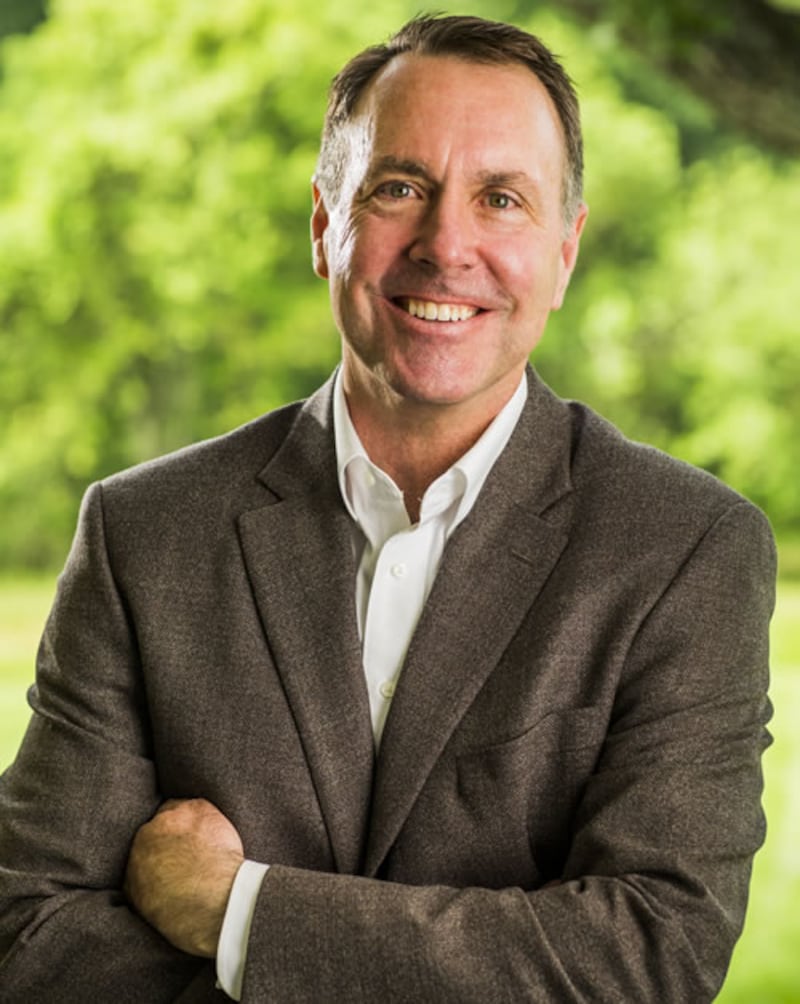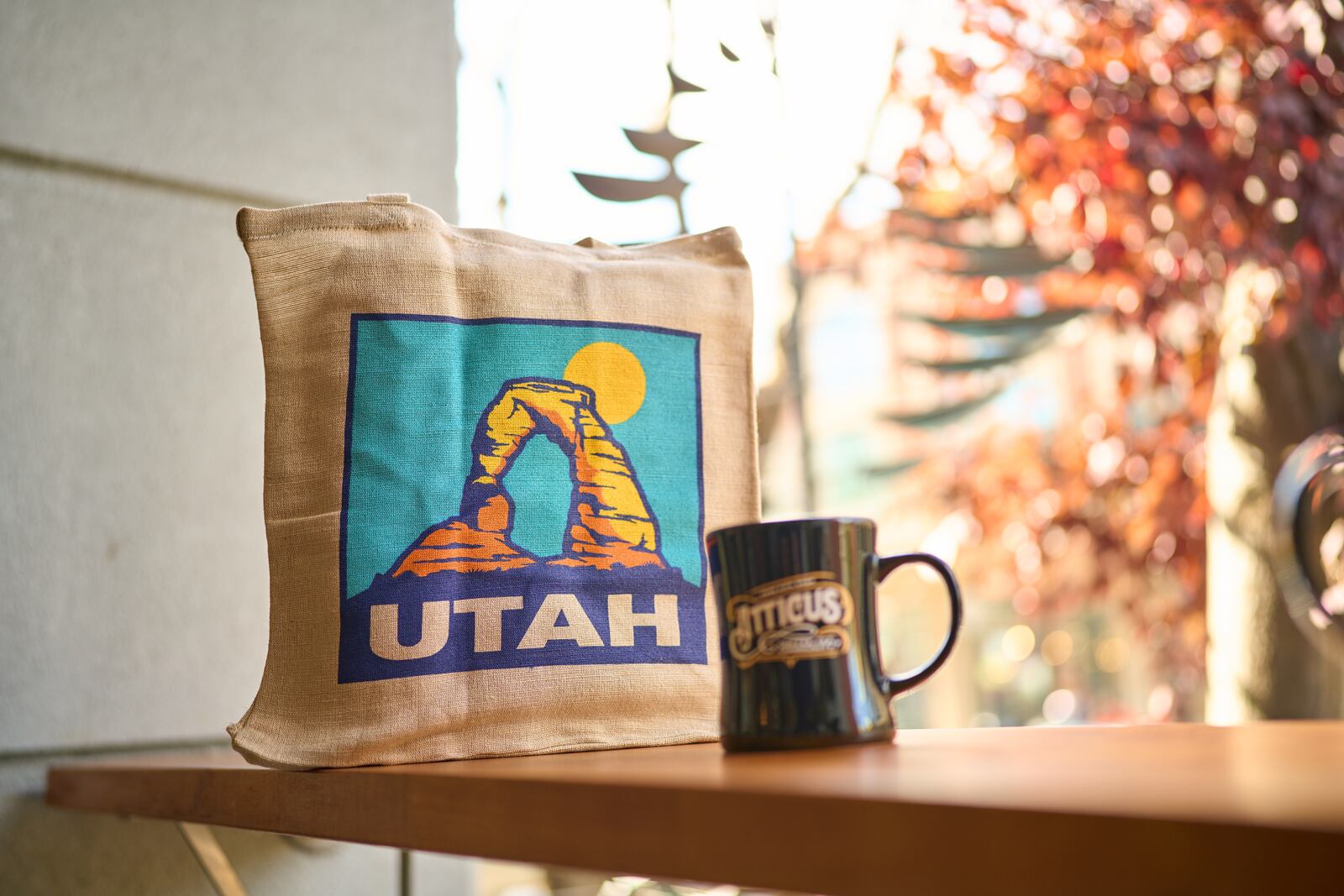After 36 years of running a successful residential landscape business in Virginia, Peter Murray and his wife relocated to Park City, Utah, in 2017. The new start was coupled with another as he felt compelled to refocus his life in a new, more sustainable direction.
According to The World Count, 160,000 plastic bags are consumed every second worldwide, with an annual rate of 5 trillion. U.S. Plastics Pact says 100 billion plastic bags are used yearly in the United States alone. When thrown out, single-use plastic bags take 1,000 years to degrade in landfills, and even when broken down, the bags’ plastic continues to pollute the environment as a microplastic, according to the Center for Biological Diversity.
When Murray started researching this issue, he was horrified.
“We had been using reusable bags in our home for quite a while already. I went back to the idea of whether we could make bags out of an all-natural material, going back to my landscape days,” he says, explaining that he would often wrap the roots of trees in burlap to protect them until the tree was planted.
“I thought to myself: Why don’t we try and make bags out of that?” Murray says. “I could pass that idea on to the retail world, making reusable bags for stores to use instead of plastic.”
With no knowledge of bag production, Murray began connecting with manufacturers and experimenting with natural replacement options, including bamboo, cotton and jute — the fiber burlap fabric is made of. Bamboo bags were not as strong as he’d hoped, and cotton bags would take a tremendous amount of water to produce. Ultimately, Jute won out as the strongest and most sustainable material.
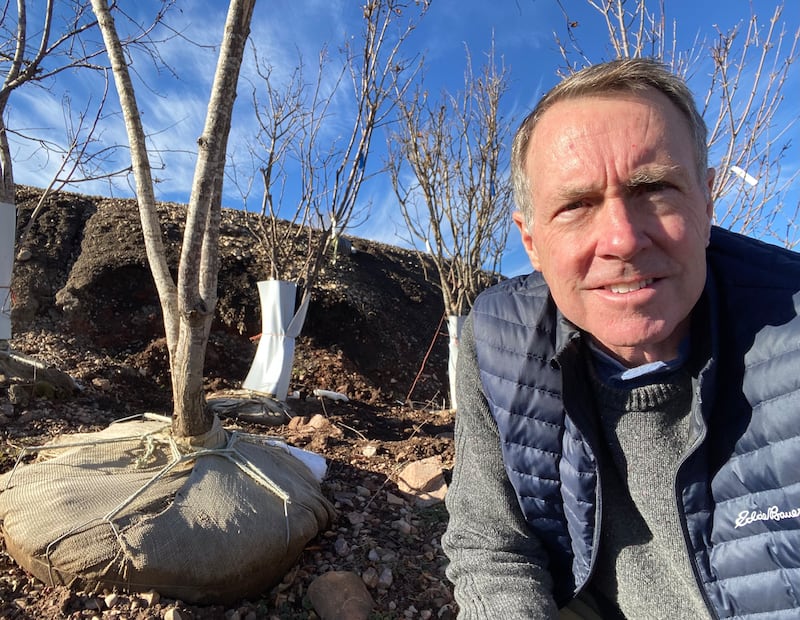
“The bags are so utilitarian, super heavy duty,” Murray says.
Murray’s main requirement for the bags was that they wouldn’t wear out or tear easily. He conducted strength tests by taking bags to the gym, putting dumbbells inside and seeing how much each could hold. While most plastic bag handles broke after placing about 30 pounds inside, the jute bags he created held 140 pounds before giving out.
“That was a requirement from my viewpoint, a bag that they could trust all the time, even if it was soaking wet,” Murray says.
While the bags were strong, they wouldn’t last forever — but that’s the point. Once a tote had worn out, Murray wanted consumers to be able to bury them in the dirt. The bags would become soil food. In nine weeks, they’d be gone.
“Almost all jute grows in India and Bangladesh, areas with lots of natural rainfall. It requires no irrigation, pesticides or fertilizer. It’s one of the few crops that fixes nitrogen back into the soil,” Murray explains. “The plant it comes from is called corchorus. Growing rice is very bad for the earth and depletes soil’s nutrients. So, after rice is harvested, corchorus is planted. We take the fiber from it and make jute, which we use for our bags. There can’t be a more sustainable product to make the bags out of.”
“Whenever I thought this wasn’t going to work, I’d go back to that statistic of 160,000 plastic bags being consumed every second, and it kept me going.”
— Peter Murray
At first, Murray’s bags were 100 percent burlap, but they had a pungent odor and would shed fiber on anything carried inside. To combat those issues, Murray’s manufacturer tested different fiber blends, finally landing on a 70/30 jute/cotton ratio that allowed for a finer-looking textile.
“It really is the perfect blend,” Murray says. “We still have all the strength we want, but it’s a tighter weave and much nicer looking too.”
Since launching Stardust Sustainables in 2017, Murray has created and sold jute reusable bags as the company’s sole product.
Rooted in sustainability
Murray didn’t know he’d be creating and selling reusable bags when he was 10, but that’s when he fell in love with the planet and all it could do. The neighborhood he grew up in was backed up to the woods, a stream and even a vast network of parks connected by trails. When summer hit, he’d leave in the morning to build dams and catch crayfish.
“Nature is just part of his DNA; it’s who he’s always been,” says Murray’s mother, Betty. “He had regular chores and responsibilities, but yard work was not work for him. He loved mowing the lawn and raking the leaves.”
Once, Murray noticed potatoes with long sprouts in the cupboard and asked his mom if more potatoes would grow if they were planted in the yard. When she said yes, Murray found a sunny spot, buried the potatoes and watered them all week. The result felt a lot like magic.
“To be honest, I was a little surprised when green buds started pushing up through the ground and leaves started visibly unfolding,” Murray says.
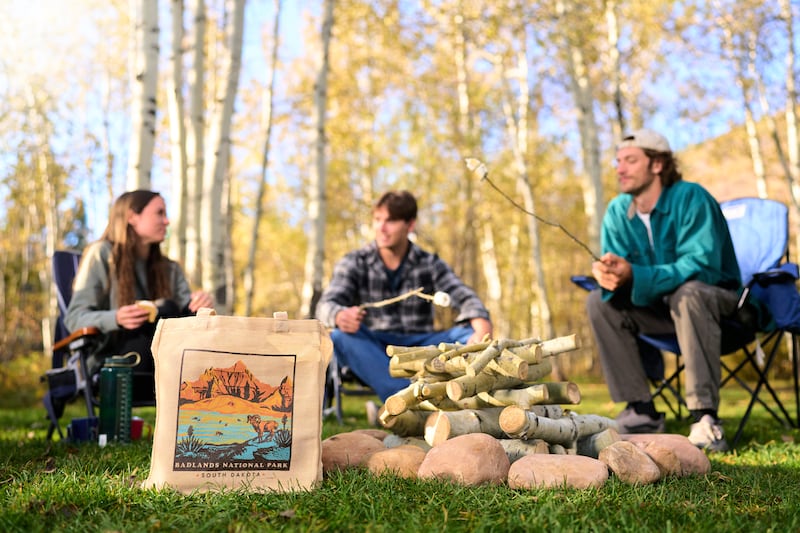
By the time fall came around, he grabbed an old shovel and started to dig, fully expecting to turn up two or three potatoes. When each shovelful produced a handful of the vegetables, he grabbed a laundry basket to collect them. His curiosity led to creating a crop he and his family could enjoy.
“It was an exhilarating feeling to grow and produce food we could eat,” Murray says. “It’s hard to describe the pride I had when the potatoes were served at dinner.”
Gardening fueled a burgeoning interest in plants. The following spring, Murray visited his local hardware store and bought seeds for radishes, cantaloupe, Indian corn and yellow crookneck squash. Every year, the garden grew along with Murray’s inspiration.
When he enrolled as a university student at Virginia Tech in Blacksburg, Murray landed on horticulture as his major, specializing in landscape architecture. A long, successful career followed. After moving to Utah, he wanted to add to all he enjoyed, and his new company began.
“To me, it wasn’t work. It was like playing a board game when you know every move won’t go well,” Murray says. “When you fail, it’s a detour, a chance to come at things from a new angle.”
From passion to profit
Once Murray determined he had a product that would work well, he had a new hurdle: sales. After an enthusiastic response from local retailers, he ordered 20,000 bags and filled his garage. However, all the stores later returned to say they could not buy his bags after all, redirecting him toward corporate offices for approval.
Slowly, stores began buying bags, but it took years for Murray to sell through his initial supply. To help move the product faster, he added colorful artwork on future bags, with slogans like “Ski Park City” and “Ski Utah.” It was a process of stops and starts, but by 2020, the company was seeing success.
When COVID-19 hit, Murray’s bags were removed from shelves for a few months but were quickly returned once the Centers for Disease Control said reusable bags would not spread the virus. Murray saw an increase in sales during the pandemic.
“Whenever I thought this wasn’t going to work, I’d go back to that statistic of 160,000 plastic bags being consumed every second, and it kept me going,” Murray says. “Something had to be done. There was too much on the line to say it wasn’t worthwhile and quit.”
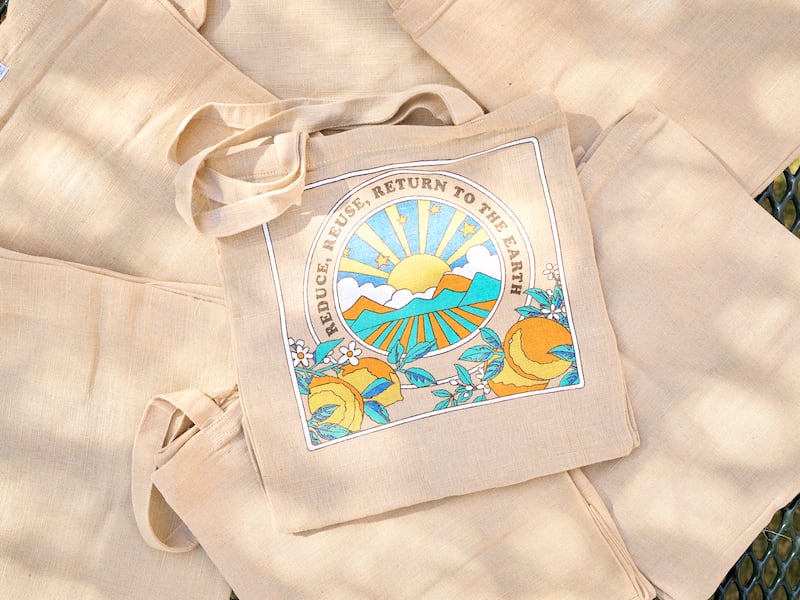
By continuing, he attracted interest from big-name retailers, like REI, an outdoor clothing and equipment co-op with over 24 million members. The retailer contacted Murray about its plan to stop providing plastic bags entirely. The chain wanted to offer reusable bags to its customers instead. Was Stardust in any way interested?
“And I said, oh yeah, absolutely!” Murray says.
Today, Stardust Sustainables has bags in every REI location in the state, and managers from its other stores have been calling. Murray and his team are now developing new artwork to place on bags they’ll sell in California, New Mexico, Oregon, Texas and Washington.
Beyond REI, the company’s bags are in seven national parks: Badlands, Crater Lake, Cuyahoga Valley, Mesa Verde, Mount Rainier, Yellowstone and Zion. Murray says that personalizing them with artwork that reflects the scenery was key to moving the needle. With two local graphic designers, Murray has developed over 25 designs.
Since the company started, 150,000 bags have been sold. Each Stardust bag holds as many as three single-use plastic bags, and Murray guesstimates that the bags will last an average of 10 years. If each bag is used 200 times, Stardust has already eliminated 900 million single-use plastic bags.
Eight U.S. states have already passed total bans on single-use plastic bags. A recent study found that banning single-use plastic bags in five locations with a combined population of more than 12 million has cut consumption by about 6 billion bags annually. Future plastic bans can eliminate an estimated 300 bags per person every year.
“This kind of news inspires us to work even harder because it shows our work is paying off,” Murray says. “Nothing motivates a team like winning.”
Back to the garden
Stardust Sustainables is named after the last chorus lines of Joni Mitchell’s “Woodstock:” “We are stardust / Billion year old carbon / We are golden / Caught in the devil’s bargain / And we’ve got to get ourselves / Back to the garden.”
He had a product that came from the Earth. His bags could be returned to the garden.
The bigger his company gets, the more Murray’s solution is allowed to expand. He plans to work with retailers in every state within the next two years. For him, that will amount to success, the impactful kind, which is what he’s been after all along.
“Money was never what this was about. It was about creating a better product for our planet,” Murray says. “There’s so much at stake. If I stopped doing this, it would be like giving up on the Earth.”
